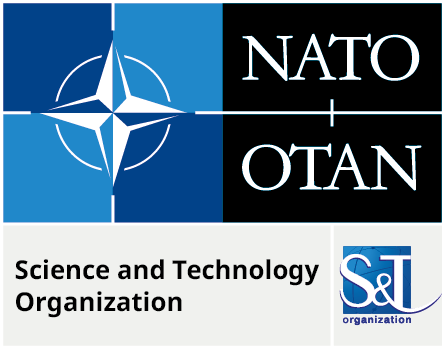NATO’s flagship scientific journal
Aims and Scope
The NATO Journal of Science and Technology disseminates the outstanding scientific achievements of NATO’s Science and Technology Organization’s research activities, conducted through the Collaborative Platform of Work (CPoW) by Scientific and Technical Committees (STCs), the Centre for Maritime Research and Experimentation (CMRE), and through the of the Office of the Chief Scientist (OCS). The journal also welcomes CPoW and NATO co-hosted or linked research, and is open to contributions from NATO Agencies producing recognised scientific and technological research.
The NATO Journal of Science and Technology was founded in 2021 and was previously known as the NATO STO Review. Devoted to the advancement of science and technology, the journal showcases the work of leading scientists who play a key role in empowering the Alliance’s technological edge.
The NATO Journal of Science and Technology is multidisciplinary, covering a wide range of topics including:
- Applied vehicle technology (AVT);
- Human factors and medicine (HFM);
- Information systems and technology (IST);
- Maritime research and experimentation (CMRE);
- Modelling and simulation (MSG);
- Sensing and electronics technology (SET);
- System analysis and studies (SAS);
- Systems concepts and integration (SCI).
- Technology and science incubation (TSI).
Cross-disciplinary papers, exploring the interrelationships between two or more of these subjects, are of particular interest, as are expert opinion pieces providing a state-of-the-discipline overview of these areas.
Journal Publication Ethics
The NATO Journal of Science and Technology upholds the highest standards of publication ethics.
- The version of record of all articles published in the journal is stored on NATO Docs (NATO’s in-house institutional repository) for long-term archiving. The journal also keeps records of manuscripts’ versions (original and revised) as they proceed through the review process, and of the editorial correspondence related to the review process of each individual manuscript. The journal abides by the Committee on Publishing Ethics (COPE) guidelines for best practice, queries, and dispute resolution.
- The journal operates a single blind peer-review process, meaning reviewers are aware of the identity of the authors of the papers they evaluate, whilst reviewers’ identities are not know to authors.
- The independence of the journal’s editorial process is protected from any commercial influences, since the NATO Journal of Science and Technology is wholly owned by NATO’s Science and Technology Organization for the sharing of its unclassified research. The journal is platinum open access: authors are not charged to publish in the journal, and content is free for all readers without any barriers or limitations. The journal is wholly non-commercial and does not enter into any sponsorship or advertising agreements.
- Please note that, due to the classification, confidentiality and sensitivity of NATO science and technology research, data sharing (in the spirit of Open Science research) is not currently possible at the NATO Journal of Science and Technology. However, data sets for individual research projects may be available upon request from NATO’s National Distribution Centres (NDCs), subject to security restrictions and clearance checks. The deposition and availability of project data depends on the nature and classification of such data, and is governed by procedures beyond the journal’s remit.
- NATO upholds a strict research and research security policy, which the journal abides by, ranging from the protection of contributors’ personal data, to the security protocols of the journal website, to researcher awareness of undue influences in the planning and execution of their projects.
- The journal provides guidance for Editors, Authors, and Reviewers, to ensure that responsibilities are clear and best-practice followed across all journal activities. Journal guidance is regularly reviewed and updated, and the journal’s Editorial Office is available to provide procedural or technical support to its collaborators.
- For example, guidance for authors explains that submissions are checked by the Editorial Office for plagiarism, similarity with authors’ previous papers, and concurrent submission elsewhere; authors submit declarations on authorship contributions, conflicts of interest. They include information on the use of AI, copyright and self-archiving, the review process, etc.
- The journal’s Editorial Team meets regularly to discuss how to improve journal processes and procedures in line with COPE recommendations, and to discuss journal strategy and growth. The Editorial Team has established Terms of Reference and codes of conduct, which underline the respectful, collaborative, expert and transparent approach required for successful editorial work – the same approach the journal takes in all is dealings, both internally (with authors and reviewers) and externally (with its system provider and the public).
- The journal publishes manuscripts on an AOP (Advanced Online Publication) basis to enable the earliest possible sharing and promotion of accepted manuscripts. Subsequently, the journal collates published papers into themed issues. In 2025, the journal will publish two issues. From 2026, the journal aims to publish four issues per annum, once a quarter. The issue publication schedule will be established prior to each calendar year, and issue tables of contents disseminated as far in advance as possible.
- The journal encourages authors whose paper is published in the NATO Journal of Science and Technology to promote it as widely as possible. The journal supports the dissemination of NATO’s scientific knowledge and discoveries beyond its specialised research community, in the understanding that Security research filters outward and informs the development of civilian applications, amplifying the benefits of the work and innovation currently undertaken by NATO and its partners.
Contact
Click This email address is being protected from spambots. You need JavaScript enabled to view it. to contact the NATO Journal of Science and Technology’s Editorial Office.
The journal is published by NATO’s Science and Technology Organization. Postal enquiries can be addressed to:
NATO Journal of Science and Technology
NATO Science and Technology Organization
Collaboration and Support Office
BP 25, F-92201 Neuilly-sur-Seine
France

